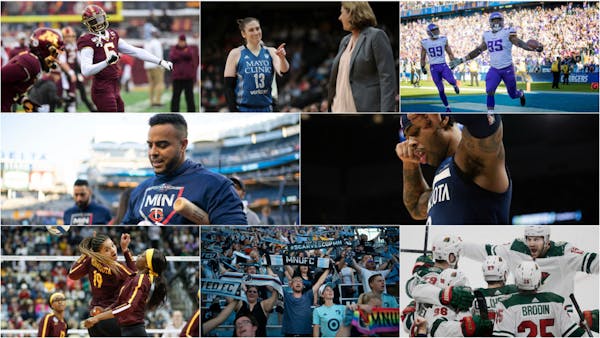Vikings quarterback Kirk Cousins, his fellow passers and rookies reported to TCO Performance Center in Eagan on Thursday, when the team's coronavirus testing process marched toward what may be hundreds of swabs in the nose before anyone can step on a field for training camp.
Every team employee from Mike Zimmer to the equipment assistant needs two negative tests, taken three days apart, before they can access facilities.
Some Vikings staffers received test results Thursday afternoon, 24 hours after undergoing coronavirus nasal swabs.
For players tested Thursday, the earliest they can meet in person is Monday.
But players can begin camp only if the NFL and NFLPA settle contentious negotiations over financial matters, including opt-out clauses and how to manage a revenue shortfall if games are played with limited attendance, as expected.
Talks sputtered Thursday afternoon as NFL owners threatened to shut down training camps without an agreement, according to the Washington Post. All NFL players are currently scheduled to report to camps by Tuesday.
"Now the coronavirus protocols are done, [NFL owners] leak a threat to shut down because they don't have players' money?" George Atallah, the NFLPA's assistant executive director of external affairs, wrote on social media Thursday afternoon.
In Eagan, Vikings players who arrived Thursday checked into one of four stations upon entering the testing trailer run by BioReference Laboratories.
Each polymerase chain reaction test, developed for coronavirus detection by the Centers for Disease Control and Prevention, takes several minutes, according to athletic trainer Eric Sugarman.
Players also were offered, but not required, to take an antibody test by blood sample. A positive result, indicating the player was previously infected, would lead to additional cardiac screening.
Test results are expected in 24 hours, which has drawn attention within the organization. Jon Cohen, executive chairman for BioReference, has touted the NBA's similar test as "95-plus% accurate" during interviews this month. But the possibility of false positives, or worse, false negatives, remains.
False negatives, allowing an asymptomatic player to pass and unknowingly infect teammates, are why the NFL and NFLPA agreed to the two negative results for entry to facilities. Two tests drop the false negative potential from 5% to 0.25%.
But a false positive test, while better than having the virus, would still further prolong the process by restarting the player's four-day testing window once a negative is registered.
Some staffers this week briefly entered TCO Performance Center for the first time in four months, an apparently abandoned scene with personal items left and old coffee in mugs.
The NFL-mandated capacity limits at every team facility means most departments, outside of players and coaches, need to set rotations or designate work-from-home employees.
For instance, only 60 non-players and coaches are allowed in the top access level in a given day.
Still, football persisted this week in virtual meetings between quarterbacks, rookies and their position coaches. Between coronavirus tests this weekend, players and families are invited to team webinars on how to prevent virus transmission, according to Sugarman.
"One of the most critical things we can do is education," he said. "We know the first few weeks are going to be some of the toughest weeks we've had, because they'll be critical to establishing our new normal."
Most rookies arrived in the Twin Cities this week to rented homes and apartments, another shift in protocol. In the past, many would have gone to a team-designated hotel.
The Vikings' historically large 15-man draft class was also busy signing contracts. The team announced Thursday every rookie was under contract, including first-round cornerback Jeff Gladney. His four-year contract is worth $11 million with a $5.6 million signing bonus.


